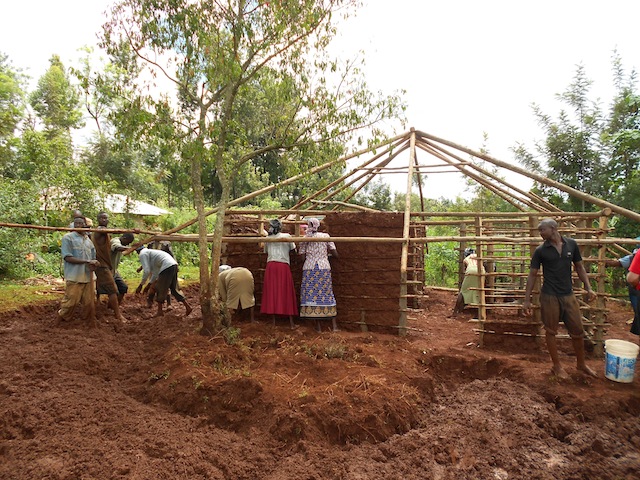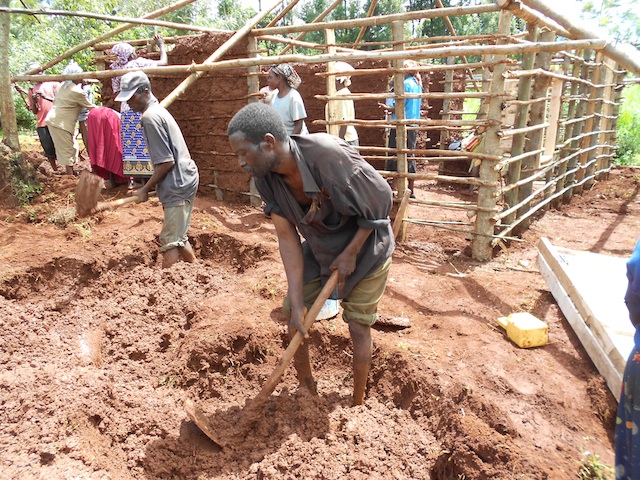A mud house and history in the making for a woman living with HIV in Kenya
This post is written by Senior Fellow Nancy Cabelus, DNP, MSN, RN, an international forensic nurse consultant currently working with Physicians for Human Rights on a program addressing sexual violence in conflict zones in central and east Africa.
 In recent weeks I reported from Kenya that I was invited to join a medical team sponsored by a Global Grant awarded to Rotary Club of Davis, California. Our mission was to provide training to medical doctors, nurses and students on Abusive Head Trauma in infants. One morning after lecturing in western Kenya at Kisii District Hospital, Rotarian and director of Africa HEART (Health Education Africa Resource Team), Vickie Winkler gave us a new assignment. She arranged for us to help local residents build a mud house for a Kenyan woman living with HIV. In the making of this hut, history happened inside a village of Kisii, Kenya.
In recent weeks I reported from Kenya that I was invited to join a medical team sponsored by a Global Grant awarded to Rotary Club of Davis, California. Our mission was to provide training to medical doctors, nurses and students on Abusive Head Trauma in infants. One morning after lecturing in western Kenya at Kisii District Hospital, Rotarian and director of Africa HEART (Health Education Africa Resource Team), Vickie Winkler gave us a new assignment. She arranged for us to help local residents build a mud house for a Kenyan woman living with HIV. In the making of this hut, history happened inside a village of Kisii, Kenya.
A Kenyan woman, I will call Ann, is married with one daughter. When Ann was tested for HIV and found to be positive, Ann was “chased” from her husband’s home, meaning disposed of by her husband and the community. How Ann acquired HIV makes no difference. In many circumstances, women like Ann are infected with the virus by their spouse or they could be infected during childbirth. Regardless, Ann was thrown out of the village without a job, financial means, an education, and a home for her and her young daughter. The stigma and shame placed upon African women like Ann is insurmountable and meanwhile, these women are also fighting with a life-threatening virus. Situations like Ann’s are not unusual in Africa.



